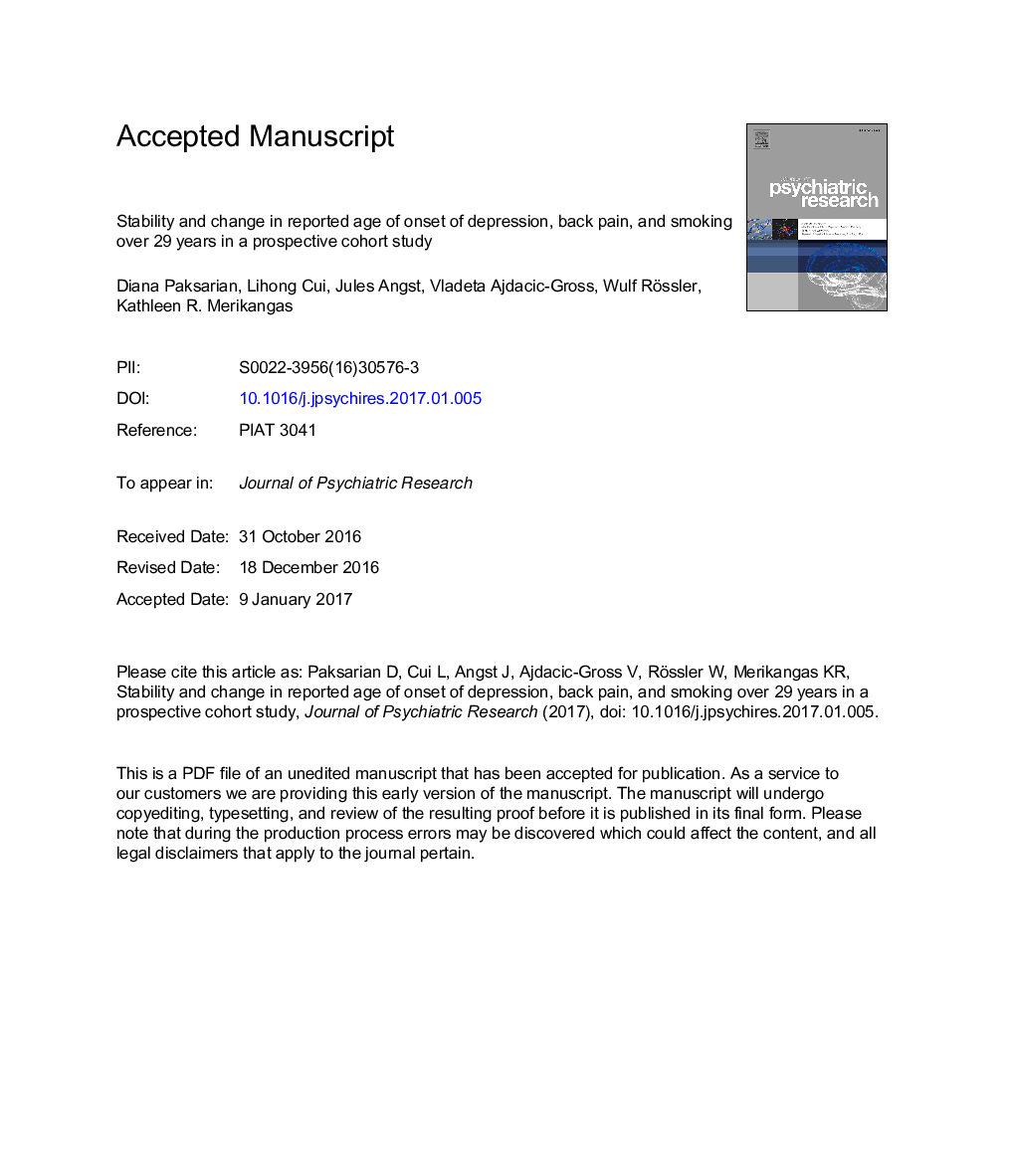| Article ID | Journal | Published Year | Pages | File Type |
|---|---|---|---|---|
| 4932098 | Journal of Psychiatric Research | 2017 | 29 Pages |
Abstract
Accurate age of onset (AOO) measurement is vital to etiologic and preventive research. While AOO reports are known to be subject to recall error, few population-based studies have been used to investigate agreement in AOO reports over more than a decade. We examined AOO reports for depression, back/neck pain, and daily smoking, in a population-based cohort spanning 29 years. A stratified sample of participants from Zurich, Switzerland (n = 591) completed a psychiatric and physical health interview 7 times between 1979, at ages 20 (males) and 21 (females), and 2008. We used one-way ANOVA to estimate intraclass correlations (ICCs) and weighted mixed models to estimate mean change over time and test for interactions with sex and clinical characteristics. Stratum-specific ICCs among those with 2 + reports were 0.19 and 0.29 for depression, 0.46 and 0.35 for back pain, and 0.66 and 0.75 for smoking. The average yearly increases in AOO report from the wave of first 12-month diagnosis or reported smoking, estimated in mixed models, were 0.57 years (95% confidence interval: 0.35, 0.79) for depression, 0.44 (95%CI: 0.28, 0.59) years for back pain, and 0.08 (95%CI: 0.03, 0.14) years for smoking. Initial impairment and frequency of treatment were associated with differences in average yearly change for depression. There is substantial variability in AOO reports over time and systematic increase with age. The degree of increase may differ by outcome, and for some outcomes, by participant clinical characteristics. Future studies should identify predictors of AOO report stability to ultimately benefit etiologic and preventive research.
Related Topics
Life Sciences
Neuroscience
Biological Psychiatry
Authors
Diana Paksarian, Lihong Cui, Jules Angst, Vladeta Ajdacic-Gross, Wulf Rössler, Kathleen R. Merikangas,
